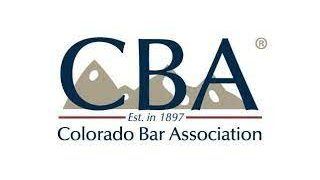Our Family Empowering Yours
What to Do When You Suspect Elder Abuse
Practicing Law for Over 20 Years | Virtual Appointments | Free Initial Consultations
Hours:
Practicing Law for Over 20 Years
Virtual Appointments
Free Initial Consultations
Posted on August 29, 2016 by Michelle
Unfortunately, elder abuse is all too common in our communities. In fact, according to the Colorado Coalition for Elder Rights and Abuse Prevention, more than 4,000 incidents of adult abuse, exploitation, or neglect are reported each year to local county departments of social services and long-term care ombudsmen in Colorado. Many more go unreported. [CCERAP]
As a Colorado attorney working in this field for over a decade, I have seen the effects of all types of elder abuse – physical, emotional, and financial – on individuals and their families. I want to share a few ideas I have gained from my experience over the years about how to spot the signs that your elderly loved one might have been victimized.
- Physical Abuse: Often in this case, you will notice bruising, bed sores, soaked wound dressings, or evidence of bodily uncleanliness. Keep in mind that physical abuse can be the result of neglect, as well as actual battery. Also, it is possible that those in charge of your loved one’s care may actually be causing physical abuse. However, it may also be the fault of others who have access to your loved one.
- Emotional Abuse: Anger, confusion, fear, or avoidance of discussing certain topics or spending time with certain people may indicate emotional abuse.
- Financial Abuse: Unpaid bills and collection notices are possible signs that financial abuse of your loved one’s assets is occurring . Likewise, your loved one saying to you that he or she is “missing money” or “does not have any money” could be evidence of financial abuse.
Of course, if your elderly loved one is in immediate danger, you should call your local emergency services immediately (911). If you suspect any kind of elder abuse, call your county’s Adult Protective Services and local law enforcement to make a report.
After you have taken these initial steps, it is always important to seek legal advice. You are your elderly loved one’s best advocate when he or she is facing an abusive situation. Your awareness and timeliness in responding are key to protecting the health, welfare, and assets of your loved one. Never just assume that someone else who cares about your loved one will fix the situation. For a free first consultation to see how I can help, please call me at The Limbaugh Law Firm (303-622-3781) or send me an email through the “Contact” page on this website.
Posted in
Elder Law
Leave a Reply
We will get back to you as soon as possible.
Please try again later.










Share On: